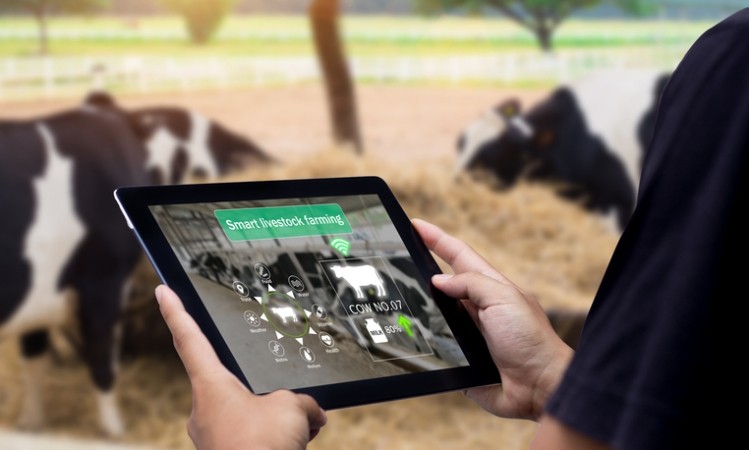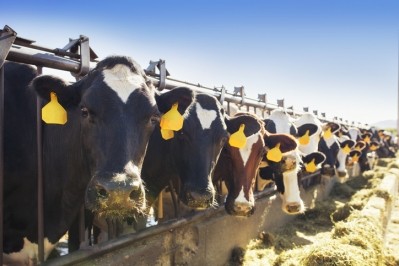Cargill and ZELP align to tackle methane emissions in the dairy industry

Enteric methane is a natural by-product of cattle digesting feed, which is then released from the mouth and nose. ZELP has developed a cattle wearable that neutralizes part of this methane as it is exhaled.
Cargill will be the exclusive distributor of the device for the European dairy market; it says the technology enables methane reduction alongside data collation to minimize the environmental impact of dairy production while improving animal welfare.
Sander van Zijderveld, Cargill’s ruminant strategic marketing and technology lead in West-Europe, told FeedNavigator:
“The technology is developed to oxidize the methane present in cattle exhalations, as up to 95% of methane emissions come from the mouth and nostrils of the animal.
“The device measures, captures and oxidizes methane in real-time, with the capacity to target more than 50% of the methane exhaled.
“The cattle wearable attaches to regular halters in a non-intrusive way and, as well as converting methane, it has the added capacity to improve animal welfare by capturing, analyzing and processing data on each animal.”
Francisco Norris, CEO and Co-founder of ZELP, which stands for Zero Emissions Livestock Project, said the technology has already demonstrated a 53% reduction potential in methane emissions. “We’ve also evaluated the wearable’s effect on animal behavior, and found no impact on production yields, rumination, rest and activity periods, and feed intake.”
The wearable looks to capture a range of animal linked behavioral and physiological data, and the partners say this feature could allow farmers to increase productivity, help detect if an animal is overheating, anticipate diseases and prevent outbreaks, and provide deeper insights of digestion, feed optimization, and feed conversion efficiency.
Further research
The UK innovator and Cargill are currently trialing their beta product with live animals in order to improve the technology further and gather key data on environmental impact and animal welfare on farm, explained van Zijderveld.
“The last trials undertaken showed a methane reduction efficiency of over 50% in climate respiration chambers. The next step is that ZELP will do further trials in collaboration with Cargill, making use of our extensive R&D network across the globe, as well as with independent universities, external renowned research institutes.”
Essentially, they will be conducting research to confirm that cows are not hindered by the wearables and research to confirm the methane reduction potential in respiration chambers.
“Independent confirmation of both the lack of impact on animal behavior as well as the methane reduction is of great importance to us. The research is not only taking place in the Netherlands, but also in other EU countries and the US,” said van Zijderveld.
Cost-effectiveness
How cost-effective is this novel technology?
“As we are still in the stage of manufacturer selection it is early to comment on the exact costs of the wearables.
“It is also hard to comment on relative cost-effectiveness as there are no recognized other solutions in the market to benchmark this technology against. Cost-effectiveness will depend on incentives for dairy farmers for carbon emissions that could come from trading the offsets caused by the wearable or from incentives on the milk price to make more sustainable dairy products. Both these markets are rapidly evolving and will certainly have changed by the time we will go to market,” commented van Zijderveld.
The technology is also sustainable in design: the idea is that it will work uninterruptedly for four years, without needing to be charged. “The wearable is packed with a solar cell and a thermo-electric generator to allow it to re-charge automatically,” said the Cargill representative.














